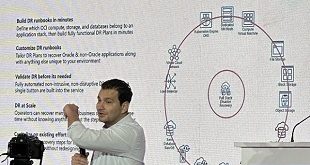
A region on edge leaves Ugandan leader with limited options
ANALYSIS | IAN KATUSIIME | President Yoweri Museveni dashed to South Sudan in early April for a quick meeting with his South Sudan counterpart, Salva Kiir, due to mounting fears of an escalation that could plunge the fragile country back into civil war.
The South Sudan People’s Defence Forces launched airstrikes on Nasir, a town in Upper Nile State that had been captured by the White Army, which is linked to First Vice President Riek Machar, currently in detention. Reports suggest that the Uganda People’s Defence Forces (UPDF) took part in the airstrikes. However, The Independent could not verify the claim.
The Ugandan army deployed in South Sudan in March this year following a request from President Kiir to once again, save his government from rebels.
South Sudan broke away from Sudan in 2011 but has since struggled to build a competent state with a unified national army capable of protecting its people and preserving peace—putting to the test the meaning of independence. Kiir and Machar remain locked in an eternal power struggle, and fierce fighting has erupted in several parts of the country.
“There is no dialogue and reconciliation in terms of the application of the rule of law. So this is why he has to face the law,” said Michael Makuei, South Sudan’s Minister of Information, in an interview with the BBC. The government accuses Machar of fomenting rebellion and backing armed groups like the White Army.
Supporters of Machar say he is being targeted in the usual power plays of the country. They are urging Kiir’s government to respect the peace agreement signed in 2018. But the government, led by the Sudan People’s Liberation Movement (SPLM)—Kiir’s party—is digging in and ramping up artillery against any group allied with the vice president.
Diplomats Are Sounding the Alarm
“South Sudan is teetering on the edge of a relapse into civil war,” warned Nicholas Haysom, the head of the UN Mission in South Sudan.
The embassies of France, Germany, the Netherlands, Norway, the United Kingdom, the United States, and the Delegation of the European Union issued a joint statement regarding Machar’s house arrest.
“We call on President Kiir to reverse this action and to prevent further escalation. We note that First Vice President Machar’s position in the government is established under Article 1.7.2 of the 2018 Peace Agreement (the R-ARCSS). We further call on President Kiir and all leaders with control or influence over armed groups to order an immediate ceasefire,” the statement reads.
The Intergovernmental Authority on Development (IGAD), a broker of the agreement, has called for dialogue and the release of Machar and his associates.
For President Museveni, who has been deeply invested in South Sudanese politics since Uganda midwifed the country’s separation from Sudan, mere statements won’t bring the two men to the table—let alone de-escalate the fighting. What’s needed is a mix of back-channeling, negotiations, and threats.
During several visits to South Sudan, Museveni has castigated tribal politics as the root cause of the constant fighting, urging both Kiir and Machar to look beyond ethnic identities and focus on national unity.
“For us, we never emphasize hawiya (identity), we emphasize maslaha. What are the interests of the people? We don’t care what tribe or religion you are,” Museveni said in 2022 while presiding over the first batch of what was meant to be the United Forces of South Sudan—a unified national army consisting of 20,000 soldiers.
“I am here to show our solidarity and happiness about what is happening here today,” Museveni said in his speech. “To see the United Force of the people of South Sudan making a nucleus of a new national force, I thank you so much,” he said.
But barely three years later, the centre cannot hold.
The event had been held at the Dr. John Garang Mausoleum in Juba. Garang, who led Southern Sudan before secession, died in a mysterious helicopter crash in July 2005. Kiir, his deputy, took over as leader.
A region teeming with conflict has changed Museveni’s calculus on the situation, prompting him to jet into the country for a series of meetings and diplomacy to defuse the tensions.
For Museveni—often deferred to when it comes to regional conflagrations—the dicey situation in South Sudan is not one to take lightly. While in Juba, he met with political party leaders from South Sudan to forge a way forward in the tense atmosphere. He also held talks with a delegation from the African Union led by former Burundian President Domitien Ndayizeye.
But before all that, Museveni met at State House Entebbe with Raila Odinga, the veteran Kenyan politician who enjoys significant regional clout.
Museveni’s meeting with Raila was significant because the latter is Kenyan President William Ruto’s special envoy to South Sudan—and now his right-hand man following a recent political pact. Kenya’s recent actions, however, have caused complications.
Kenya, Sudan Complication
In February, President Ruto agreed to host the formation of a parallel Sudan government in Nairobi—widely seen as a rookie diplomatic error. Sudan has been embroiled in conflict for two years between the Sudanese army, led by Gen. Abdel Fattah Burhan, and the Rapid Support Forces (RSF), a paramilitary group-turned-rebel force.
The RSF signed a charter with various allied groups in the Kenyan capital to form a “government of peace and unity.”
Ruto’s decision sparked anger within Kenya and caught East African leaders off guard. All neighboring countries, including Uganda, kept away from the agreement—a signal of how grey the diplomatic situation had become.
The Sudanese army slammed Ruto, calling his actions hostile. In a video, Gen. Burhan vowed to crush the RSF and told the group there would be no amnesty for its fighters.
Weeks after the RSF’s overt move, the Sudanese army recaptured Khartoum, the capital of Sudan, in early April—throwing the region into a geopolitical puzzle.
Ruto, bearing weight as the leader of East Africa’s largest economy, had given political cover to the RSF but reneged on his word after meeting with the Sudanese foreign minister, where he promised that Kenya would not take sides in the conflict.
Nairobi’s partial stance has implications for regional peace. Sudan now views Kenya as a country supporting a rebel group accused of killing thousands. Sudan was always opposed to South Sudan’s secession, and the continued fighting in Sudan poses serious threats to its southern neighbor.
Sudan shares a border with South Sudan, and there are growing fears that conflict in the north could spill over into a country already struggling to build internal cohesion—let alone ward off external challenges from a neighbor it has feuded with for generations.
Uganda Steps In Again
Museveni and Kiir share a long history. Kiir is a frequent visitor to State House Entebbe, where discussions often center on strengthening bilateral ties and, critically, enhancing security.
Uganda is the guarantor of the 2018 peace agreement that formed a government of national unity—bringing Machar back as vice president after a dramatic 2013 fallout in which Kiir sacked his entire cabinet, triggering war.
The agreement also led to the appointment of influential figures like Rebecca Garang, widow of SPLM leader John Garang, as Second Vice President. But fast forward to today, and the peace agreement is unravelling as South Sudanese politicians continue to flex over power and control of the oil-rich country.
With war erupting yet again this year, the UPDF deployed in Juba with an estimated 4,000 boots on the ground. It was a familiar drill for the Ugandan army, which first entered South Sudan in December 2013. Back then, they stayed for about a year after repulsing mutinous forces attempting to topple Kiir.
The UPDF encircled the capital, airport, and other strategic areas. Twelve years later, the army is back—once again holding together Kiir’s fragile government.
On March 10, in accordance with the Memorandum of Understanding on Defence Cooperation and Status of Forces Agreement, President Kiir officially requested urgent military support from Museveni to avert a potential security catastrophe in South Sudan, according to Defence Minister Jacob Oboth. The Ugandan Parliament approved the deployment.
Leading the Ugandan forces is Brig. Anthony Mbuusi, who recently returned from Somalia, where he served as contingent commander.
 The Independent Uganda: You get the Truth we Pay the Price
The Independent Uganda: You get the Truth we Pay the Price



